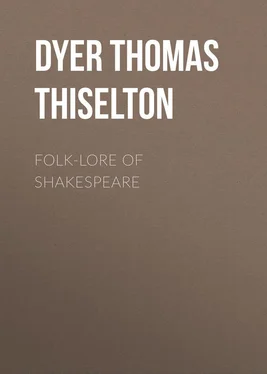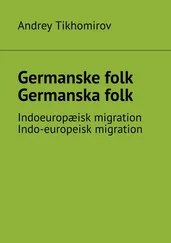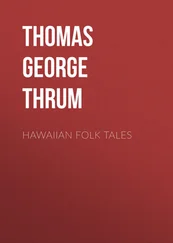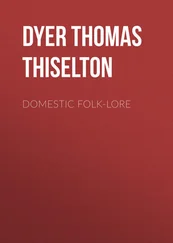Thomas Dyer - Folk-lore of Shakespeare
Здесь есть возможность читать онлайн «Thomas Dyer - Folk-lore of Shakespeare» — ознакомительный отрывок электронной книги совершенно бесплатно, а после прочтения отрывка купить полную версию. В некоторых случаях можно слушать аудио, скачать через торрент в формате fb2 и присутствует краткое содержание. Жанр: foreign_antique, foreign_prose, на английском языке. Описание произведения, (предисловие) а так же отзывы посетителей доступны на портале библиотеки ЛибКат.
- Название:Folk-lore of Shakespeare
- Автор:
- Жанр:
- Год:неизвестен
- ISBN:нет данных
- Рейтинг книги:4 / 5. Голосов: 1
-
Избранное:Добавить в избранное
- Отзывы:
-
Ваша оценка:
- 80
- 1
- 2
- 3
- 4
- 5
Folk-lore of Shakespeare: краткое содержание, описание и аннотация
Предлагаем к чтению аннотацию, описание, краткое содержание или предисловие (зависит от того, что написал сам автор книги «Folk-lore of Shakespeare»). Если вы не нашли необходимую информацию о книге — напишите в комментариях, мы постараемся отыскать её.
Folk-lore of Shakespeare — читать онлайн ознакомительный отрывок
Ниже представлен текст книги, разбитый по страницам. Система сохранения места последней прочитанной страницы, позволяет с удобством читать онлайн бесплатно книгу «Folk-lore of Shakespeare», без необходимости каждый раз заново искать на чём Вы остановились. Поставьте закладку, и сможете в любой момент перейти на страницу, на которой закончили чтение.
Интервал:
Закладка:
While the belief in the power of fairies existed, they were supposed to perform much good service to mankind. Thus, in “A Midsummer-Night’s Dream” (v. 1), Oberon says:
“With this field-dew consecrate,
Every fairy take his gait;
And each several chamber bless,
Through this palace, with sweet peace;
And the owner of it blest,
Ever shall in safety rest” —
the object of their blessing being to bring peace upon the house of Theseus. Mr. Douce 37 37 “Illustrations of Shakespeare,” pp. 126, 127.
remarks that the great influence which the belief in fairies had on the popular mind “gave so much offence to the holy monks and friars, that they determined to exert all their power to expel these imaginary beings from the minds of the people, by taking the office of the fairies’ benedictions entirely into their own hands;” a proof of which we have in Chaucer’s “Wife of Bath:”
“I speke of many hundred yeres ago;
But now can no man see non elves mo,
For now the grete charitee and prayeres
Of limitoures and other holy freres
That serchen every land and every streme,
As thikke as motes in the sonne beme,
Blissing halles, chambres, kichenes, and boures,
Citees and burghes, castles highe and toures,
Thropes and bernes, shepenes and dairies,
This maketh that ther ben no faeries:
For ther as wont to walken was an elf
Ther walketh now the limitour himself.”
Macbeth, too (v. 8), in his encounter with Macduff, says:
“I bear a charmed life, which must not yield
To one of woman born.”
In the days of chivalry, the champion’s arms were ceremoniously blessed, each taking an oath that he used no charmed weapon. In Spenser’s “Fairy Queen” (book i. canto 4) we read:
“he bears a charmed shield,
And eke enchanted arms, that none can pierce.”
Fairies were amazingly expeditious in their journeys. Thus, Puck goes “swifter than arrow from the Tartar’s bow,” and in “A Midsummer-Night’s Dream” he answers Oberon, who was about to send him on a secret expedition:
“I’ll put a girdle round about the earth
In forty minutes.”
Again, the same fairy addresses him:
“Fairy king, attend, and mark:
I do hear the morning lark.
Oberon. Then, my queen, in silence sad,
Trip we after the night’s shade:
We the globe can compass soon,
Swifter than the wand’ring moon.”
Once more, Puck says:
“My fairy lord, this must be done with haste,
For night’s swift dragons cut the clouds full fast,
And yonder shines Aurora’s harbinger,” etc.
It was fatal, if we may believe Falstaff in “Merry Wives of Windsor” (v. 5) to speak to a fairy: “They are fairies; he that speaks to them shall die.”
Fairies are accustomed to enrich their favorites; and in “A Winter’s Tale” (iii. 3) the shepherd says: “It was told me I should be rich by the fairies;” 38 38 See Croker’s “Fairy Legends and Traditions of the South of Ireland,” p. 316.
and in “Cymbeline” (v. 4), Posthumus, on waking and finding the mysterious paper, exclaims:
“What fairies haunt this ground? A book? O rare one!
Be not, as is our fangled world, a garment
Nobler than that it covers,” etc.
At the same time, however, it was unlucky to reveal their acts of generosity, as the shepherd further tells us: “This is fairy gold, boy; and ’twill prove so; up with’t, keep it close, home, home, the next way. We are lucky, boy; and to be so still requires nothing but secrecy.”
The necessity of secrecy in fairy transactions of this kind is illustrated in Massinger and Field’s play of “The Fatal Dowry,” 1632 (iv. 1), 39 39 See Brand’s “Pop. Antiq.,” vol. ii. p. 493.
where Romont says:
“But not a word o’ it; ’tis fairies’ treasure,
Which, but reveal’d, brings on the blabber’s ruin.”
Among the many other good qualities belonging to the fairy tribe, we are told that they were humanely attentive to the youthful dead. 40 40 Ritson’s “Fairy Mythology of Shakespeare,” 1875, p. 29.
Thus Guiderius, in “Cymbeline,” thinking that Imogen is dead (iv. 2), says:
“With female fairies will his tomb be haunted,
And worms will not come to thee;” 41 41 Some copies read them .
there having been a popular notion that where fairies resorted no noxious creature could be found.
In the pathetic dirge of Collins a similar allusion is made:
“No wither’d witch shall here be seen,
No goblin lead their nightly crew;
The female fays shall haunt the green,
And dress thy grave with pearly dew.”
It seems, however, that they were also supposed to be malignant; but this, “it may be,” says Mr. Ritson, “was merely calumny, as being utterly inconsistent with their general character, which was singularly innocent and amiable.” Thus, when Imogen, in “Cymbeline” (ii. 2), prays on going to sleep, it must have been, says Mr. Ritson, 42 42 “Fairy Mythology,” pp. 27, 28.
the incubus she was so afraid of.
“From fairies and the tempters of the night,
Guard me, beseech ye,” 43 43 We may compare Banquo’s words in “Macbeth” (ii. 1): “Restrain in me the cursed thoughts that nature Gives way to in repose.”
Hamlet, too, notices this imputed malignity of the fairies (i. 1):
“Then no planet strikes,
Nor fairy takes, nor witch hath power to charm.” 44 44 “Comedy of Errors” (iv. 2) some critics read: “A fiend, a fairy, pitiless and rough.”
That the fairies, however, were fond of indulging in mischievous sport at the expense of mortals is beyond all doubt, the merry pranks of Puck or Robin Goodfellow fully illustrating this item of our fairy-lore. Thus, in “A Midsummer-Night’s Dream” (ii. 1) this playful fairy says:
“I am that merry wanderer of the night.
I jest to Oberon and make him smile,
When I a fat and bean-fed horse beguile,
Neighing in likeness of a filly foal:
And sometime lurk I in a gossip’s bowl,
In very likeness of a roasted crab;
And when she drinks, against her lips I bob,
And on her wither’d dewlap pour the ale.
The wisest aunt, telling the saddest tale,
Sometime for three-foot stool mistaketh me;
Then slip I from her bum, down topples she,
And ‘tailor’ cries, and falls into a cough.”
A fairy, in another passage, asks Robin:
“Are you not he
That frights the maidens of the villagery,
Mislead night-wanderers, laughing at their harm?”
We have already mentioned how Queen Mab had the same mischievous humor in her composition, which is described by Mercutio in “Romeo and Juliet” (i. 4):
“This is that very Mab
That plats the manes of horses in the night,
And bakes the elflocks in foul sluttish hairs,
Which, once untangled, much misfortune bodes.”
Another reprehensible practice attributed to the fairies was that of carrying off and exchanging children, such being designated changelings. 45 45 This superstition is fully described in chapter on Birth .
The special agent in transactions of the sort was also Queen Mab, and hence Mercutio says:
Интервал:
Закладка:
Похожие книги на «Folk-lore of Shakespeare»
Представляем Вашему вниманию похожие книги на «Folk-lore of Shakespeare» списком для выбора. Мы отобрали схожую по названию и смыслу литературу в надежде предоставить читателям больше вариантов отыскать новые, интересные, ещё непрочитанные произведения.
Обсуждение, отзывы о книге «Folk-lore of Shakespeare» и просто собственные мнения читателей. Оставьте ваши комментарии, напишите, что Вы думаете о произведении, его смысле или главных героях. Укажите что конкретно понравилось, а что нет, и почему Вы так считаете.












